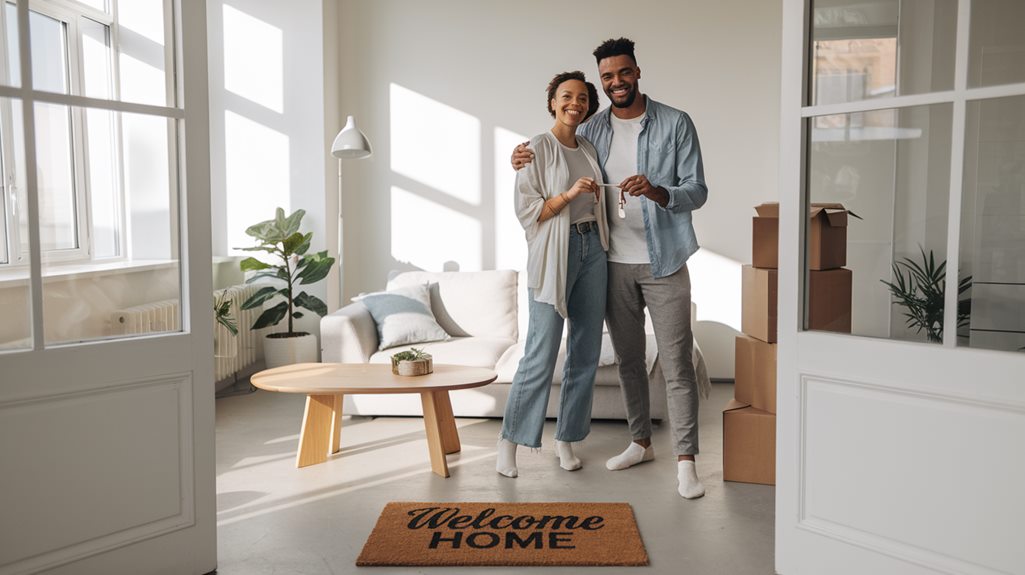If you are a first-time buyer, it's important to know your budget. This helps you see what you can afford, like your mortgage and repair costs.
Check your credit score too, because it can affect your mortgage rates and if you get approved.
Try to get pre-approved for a mortgage. This shows sellers that you are serious about buying a home.
Look into different neighborhoods to find one that fits your lifestyle. Think about what features are most important in a home and make sure they fit within your budget.
Go to open houses to see homes in person. When you find one you like, make a good offer based on what homes are selling for in that area.
Don't forget to schedule a home inspection. This will help you find any problems with the house.
Finally, look over the closing costs carefully. Following these tips can help you on your journey to buying a home!
Ready to start building equity in your own Michigan home? Get your personalized home loan quote today.
Determine Your Budget
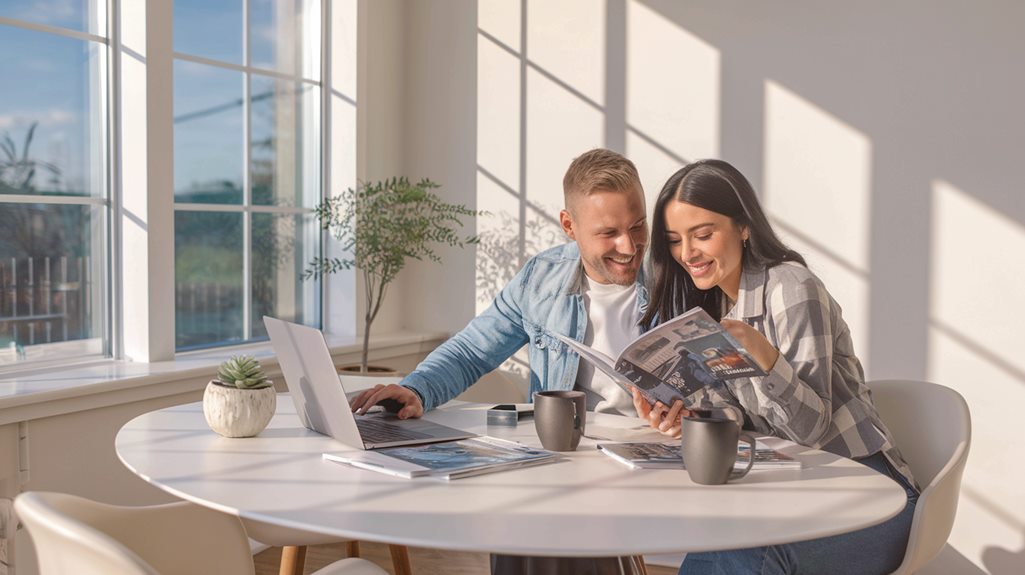
When you want to buy your first home, the first thing to do is figure out how much money you can spend.
Start by looking at what money you have coming in and what you spend each month. This will help you understand how much you can afford without changing your life too much.
Think about how much your monthly mortgage will be, along with property taxes and any repairs that might come up.
It's also smart to save some money for surprises that might happen later.
By planning your money carefully, you'll feel more secure and happy in your new neighborhood.
A good budget helps you make smart choices and feel more confident about buying a home.
Michigan residents, unlock the door to your new home. Request your home loan quote from Treeside Financial today.
Check Your Credit Score
Knowing your credit score is really important when you want to buy your first home. It helps banks decide the interest rates you get and how much money they'll lend you. Your credit report is like a report card for your money. It shows how you've managed your money in the past, and it affects how much you can borrow.
To feel good about buying a home, start by getting your credit report. Look at it carefully to see if there are any mistakes. If you find any, you can fix them.
To make your credit score better, pay your bills on time, try to pay off any debts, and don't apply for too much new credit. Doing these things will help you look good to lenders and make it easier to get a good mortgage.
Get Pre-Approved
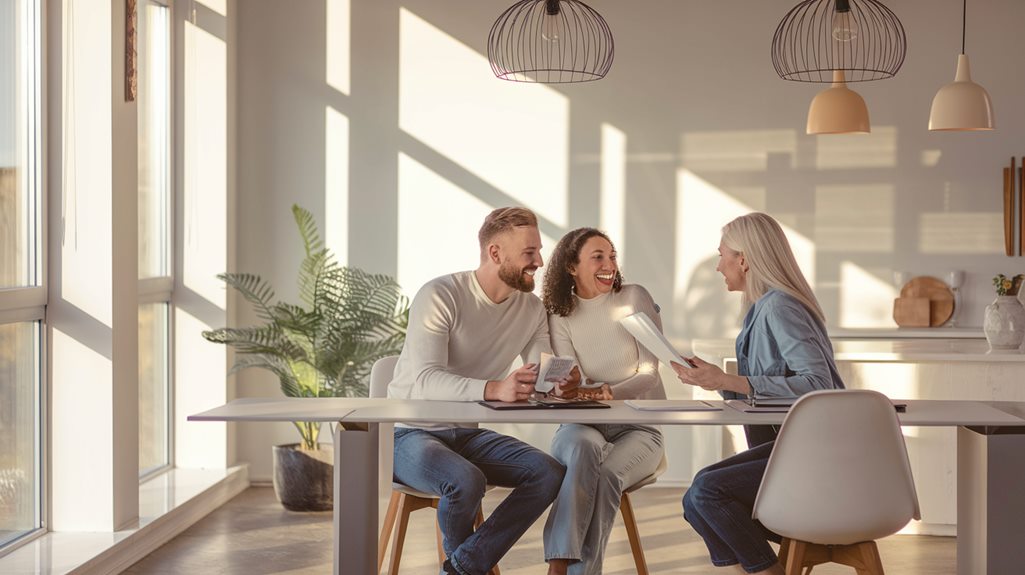
Before you start looking for a house, it's a good idea to get pre-approved for a mortgage. This means you'll know how much money you can spend. It helps you choose homes that fit your budget and shows sellers that you're a serious buyer.
When you talk to lenders, they'll look at your money situation to find the best mortgage for you. Make sure to have important papers ready, like proof of how much money you make and your credit history.
Having a pre-approval can help you stand out when there are many buyers, and it can make you feel more confident as you start your journey to owning a home.
Research Neighborhoods
When you look into neighborhoods, it's important to check out what they've nearby.
Think about things like schools, parks, and stores. Good schools can help homes stay valuable and can be important if you want to sell later.
Assess Local Amenities
When you're thinking about buying a home, it's very important to look at the local amenities. This will help you find a neighborhood that fits your lifestyle and what you want.
First, check if there are buses or trains nearby. This makes getting to work or school easier.
Next, see if there are shopping places and restaurants close by. This way, you can buy what you need and enjoy eating out.
Also, look for parks and playgrounds where you can play and relax outside.
Make sure there are doctors and hospitals nearby. This will give you peace of mind if you ever need help.
It's also good to know how safe the area is, so you feel secure with your family.
Evaluate School Districts
When looking for a neighborhood, it's important to check out the schools, especially if you have kids or want to in the future.
Start by looking at how the schools are rated. Good ratings usually mean kids get a great education, which helps them learn better.
It's also good to see how involved the community is. When people in the neighborhood care about the schools, they often help make things better for the kids.
You can visit the schools and chat with parents to learn more about them. A strong school district not only helps your child but can also make homes worth more money.
Prioritize Must-Haves
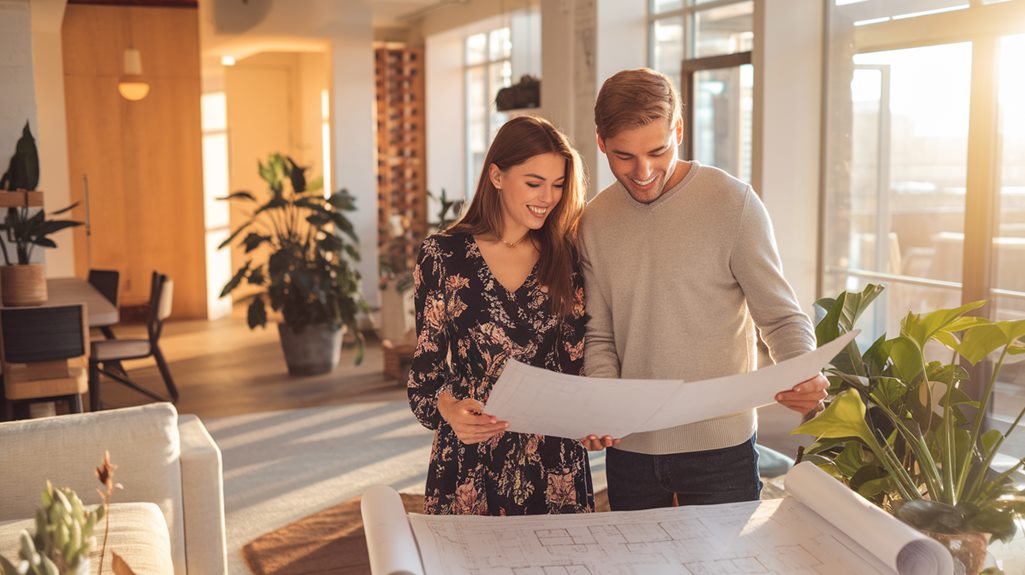
When buying a home, it's important to think about what you really need. Start by figuring out the things that are must-haves for you. These are the features that will make you feel at home.
Some things might be so important that if they aren't there, you won't want the house at all. This will help you stay focused and not get lost in too many choices. A home is more than just a building—it's a place where you can feel safe and happy.
Here's a simple checklist to help you think about your needs:
- Location: How close is it to your work, family, and fun places?
- Space: How many bedrooms and bathrooms do you need for everyone?
- Budget: Make sure you can afford it without giving up on the things you really want.
Hire a Real Estate Agent
Buying a home can be tricky, and that's why having a good real estate agent helps a lot. They know the ins and outs of buying and selling houses. They can explain things in a way that makes sense and help you understand what's happening in the market.
Your agent is like your friend who knows a lot about homes. They'll help you find the right house and make sure you get a fair deal. They've many tools and connections that make searching for your new home easier and faster.
Some people worry about paying the agent, but they can actually save you money in the long run by getting a better price. Trusting your agent means you can feel more relaxed and excited about buying your new home.
Working together with your agent is the best way to make your home-buying journey a happy one!
Attend Open Houses
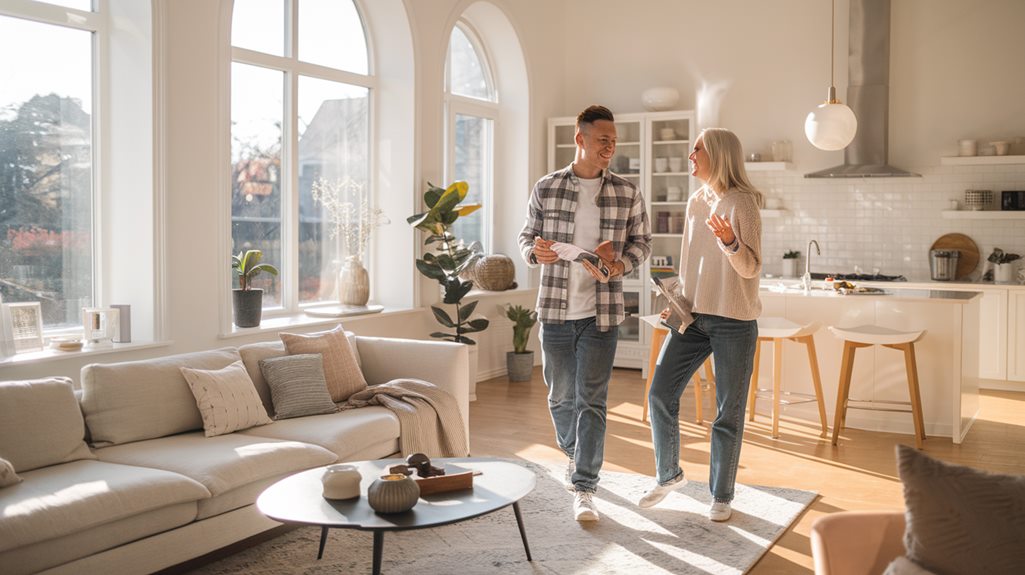
Visiting open houses is an important part of buying a home. It lets you see houses up close and feel the neighborhood.
When you go to an open house, remember to be polite. Arrive on time and respect the seller's home. If you can't go in person, try a virtual tour. It's an easy way to see the house, too.
Here are some tips to make your open house visit better:
- Be ready: Bring a list of things you want in a house and questions to ask.
- Write things down: Take notes about what you like and don't like, so you can remember later.
- Talk to people: Meet agents and other buyers to share ideas and make friends.
Enjoy your house hunting!
Make a Competitive Offer
Making a great offer is very important if you want to buy your dream home. First, look at the homes nearby to see how much they sold for. This will help you know what your home is worth. Talk to your real estate agent to help you figure out a good price. Think about what you want to include in your offer to show you really want the house.
Your offer should show how excited you are to be part of the neighborhood. It's not just about money; it's about wanting to belong and be happy in your new home.
| Emotion | Description |
|---|---|
| Excitement | The joy of moving to a new place. |
| Confidence | Feeling sure about your offer. |
| Belonging | Finding a place where you fit in. |
| Anticipation | Looking forward to new adventures. |
Let your feelings shine through in your offer!
Schedule a Home Inspection
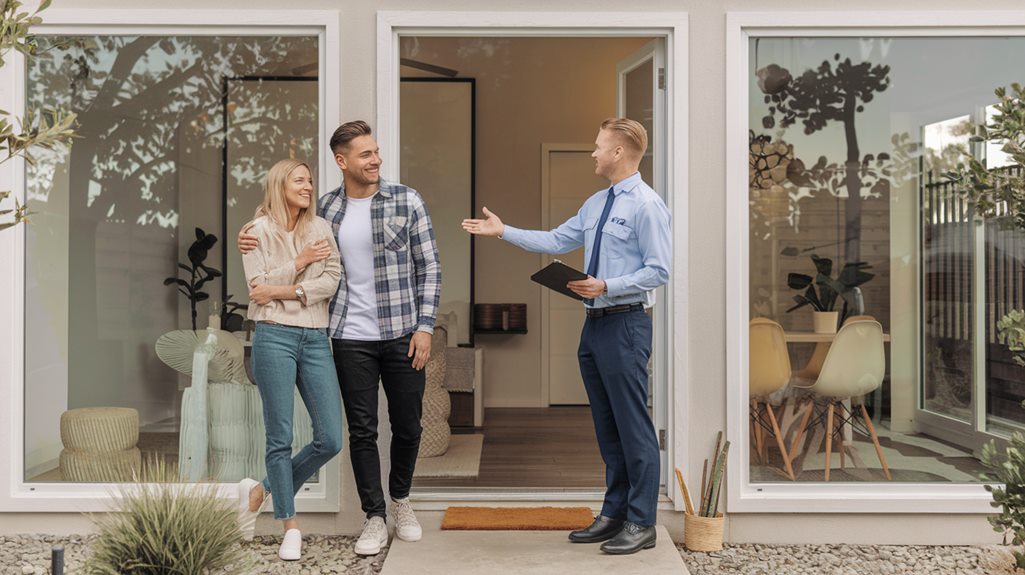
Getting a home inspection is really important.
It helps you find problems that you mightn't see at first. When you know how the house is, you can ask for repairs or lower the price if needed.
A good inspection helps you feel sure about your choice. Always make sure to get one!
Importance of Home Inspection
When you want to buy a home, one important thing to do is to have a home inspection. This helps you learn about how the house is doing and if there are any problems.
It's smart to pick a good inspector who knows what they're doing. They'll check a lot of things to make sure everything is okay. This way, you can talk about any repairs needed after the inspection.
Here are some things you can do:
- Get ready for the inspection by learning what the inspector will look at.
- Go to the inspection so you can see everything and ask questions if you have any.
- Look at the report after the inspection to decide what to do next.
Doing these things will help you feel more confident about buying your new home!
Identifying Potential Issues
When you want to buy a house, one of the first things you need to do is check it carefully. This is called a home inspection. It helps you find any hidden problems, so you don't end up spending a lot of money later. Look at what the seller says about the house, but remember they might not tell you everything. A home inspector will check if the house is safe and if there are any bugs or pests. This can help you avoid surprises down the road. Also, think about the neighborhood, as it can change how much your house is worth.
| Potential Problem | What to Think About |
|---|---|
| Hidden Problems | Can make fixing the house cost more |
| Inspection Mistakes | Might miss important issues |
| Seller Information | Might not tell the whole story |
| House Safety | Very important for you and your family |
| Pest Problems | Can be expensive to fix |
Negotiating Inspection Findings
After a home inspection, you might find some problems. The next step is to talk about these issues to keep your investment safe.
First, get repair estimates from good contractors. This will help you when you talk to the seller. Be clear with them about how these repairs change the value of the home. Remember, it's not just about asking for a lower price. You can also ask the seller to fix things or give you money at closing.
Here are some tips to help you:
- Focus on Big Problems: Talk about serious issues like problems with the building, electricity, or plumbing. These things can make the home unsafe or less valuable.
- Use the Market to Your Advantage: If it's a buyer's market, you have a better chance to ask for something extra.
- Be Polite: Keep a friendly tone. This helps everyone work together and find a solution that makes both sides happy.
Review Closing Costs
When buying a home, it's really important to know about closing costs, especially if it's your first time. Closing costs are the extra money you pay when you finish buying a house. Sometimes, there are hidden fees that can surprise you, so it's good to know what to expect. Here's a simple list of some costs you might see:
| Cost Type | What It Is | How It Affects You |
|---|---|---|
| Loan Fees | Money for starting the loan | Can cost a bit |
| Escrow Charges | Money for title insurance | Can cost a lot |
| Hidden Fees | Extra costs that pop up | Can be a surprise |
| Recording Fees | Money for filing papers | Usually not much |
| Prepaid Expenses | Money for taxes and insurance | Can change a lot |
Knowing about these costs helps you feel more in control when buying your new home!

